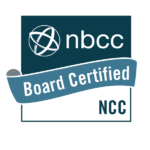The role of the internet has come a long way over the past few decades. What started out as a means for communicating between two computers and increasing data transfer efficiency has grown into a monster that has taken over the world.
Deriving from the original idea of the internet, social media and mobile internet have become a way of life. How many people do you know that are not connected with online platforms in some way, shape, or form? They are rare finds and few and far between. Whether it’s for work or leisure, online activity is ingrained in so many facets of daily life.
With that much exposure online, there can be a major influence on your mental health and overall personal image. The real world becomes skewed, personal relationships and interactions become abnormal, and there is a heavy weight placed on how you are perceived by those around you.
Living In The Bubble
Happiness is manufactured online, even when it is the farthest thing from the truth. Social media has created a need for, and the ability to dictate, a black-and-white life. Things are either good or they’re bad. With you being in control of the content you create, you control the narrative.
No one wants to be judged for being a failure or having a bad day, so why not edit that part out. The online version of yourself can become different from the real version. One big distortion.
A little omission here, a small lie there. Add on a filter to change the look or aesthetic. Over time, this online story is no longer the reality. Not only does it give off a false persona, it causes you to have to exist as two separate people. Which one is the true one?
Reactions To Responses
You may spend a lot of time deciding what to put on your online profiles. Imagine taking fifty different photos just to capture the one “perfect” shot. Then you spent time writing the “perfect” caption to go along with it. You edited it with crops and filters. Finally, after all of that, you hit post.

But then once your content is posted, you don’t get the likes you want or you receive minimal commentary. If those comments are negative or mean, it can hit pretty hard. Taking negative opinions of others, especially in the online world of strangers, can take you down a horrible spiral and reduce your self-image.
As you receive this feedback, it can be a vicious cycle of altering how you post your future content. It amplifies any self-distortions you may have already had or start creating new ones.
Impact Of Your Responses
When you have created this online persona, that person may have specific objectives that they stand up for and voice their opinion over. Social media is a platform for opinions after all.
Because you have that role, when others post their content, you may feel that you need to respond and in a certain type of way. You won’t want any lack of response from you or an incorrect response to cause anyone to think any other way.
During times of high-profile polarization, you know your thoughts on matters. Think election times or social injustices. Heck, you can’t open up news anymore without seeing a mass shooting. A problem lies when you worry about others knowing your thoughts. A lack of response can often appear to others as a lack of opinion. So you give a response, but you have to go through the cycle of creating the perfect response to not be judged or cause a backlash. Is the way your response presented even yours anymore then?
The internet and social media can be wonderful tools…until they aren’t. If you are struggling with a healthy use of them, reach out for a professional consultation for anxiety therapy.



